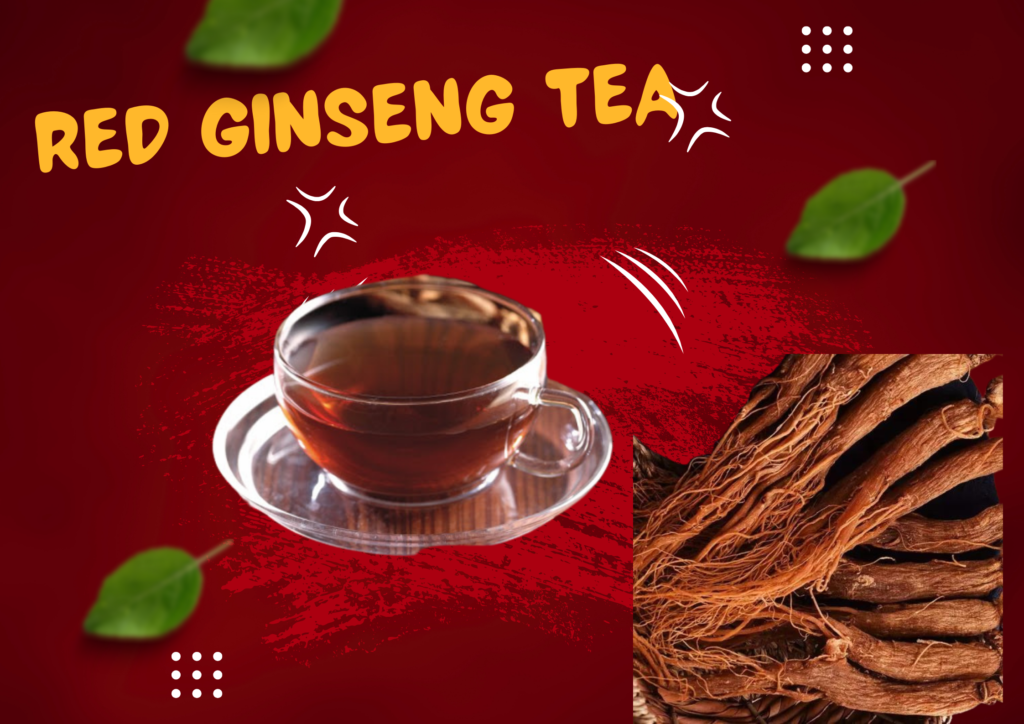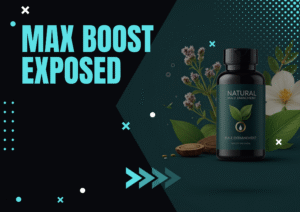
Red Ginseng Tea Side Effects: What You Need to Know Before Brewing

Red ginseng tea, a vibrant ruby-hued infusion steeped in tradition, has captivated wellness enthusiasts for centuries. This aromatic beverage, crafted from the meticulously steamed and dried root of the Panax ginseng plant, boasts a reputation for enhancing energy, immunity, and overall well-being. But before you dive headfirst into a steaming cup, let’s explore the potential side effects of red ginseng tea and ensure you’re brewing a cup that empowers, not hinders, your health journey.
The Powerhouse Within: Unveiling Red Ginseng’s Benefits
Red ginseng tea isn’t simply a trendy beverage; it’s a natural source of various bioactive compounds known as ginsenosides. These unique molecules are believed to be responsible for red ginseng’s purported health benefits, including:
- Enhanced Energy Levels: Studies suggest red ginseng may combat fatigue and improve physical performance, making it a potential ally for athletes or those seeking a natural energy boost.
- Boosted Immunity: Red ginseng may stimulate the immune system, potentially helping your body fight off infections and illnesses more effectively.
- Improved Cognitive Function: Research indicates red ginseng might enhance memory, focus, and cognitive function, especially in older adults.
- Reduced Stress and Anxiety: Red ginseng’s adaptogenic properties may help the body adapt to stress and promote feelings of relaxation.
- Potential Benefits for Blood Sugar Control: Some studies suggest red ginseng can improve blood sugar regulation, potentially aiding in managing type 2 diabetes.
It’s Not All Sunshine and Rainbows: Exploring Potential Side Effects
While red ginseng tea offers a range of potential benefits, it’s important to acknowledge that it’s not without its drawbacks. Here’s a breakdown of some common side effects and who might be more susceptible:
- Insomnia and Sleep Disruptions: Red ginseng’s stimulating properties can cause difficulty falling asleep or staying asleep, especially for those sensitive to stimulants.
- Headaches and Dizziness: Some individuals might experience headaches, dizziness, or lightheadedness after consuming red ginseng tea.
- Stomach Upset: Red ginseng can irritate the digestive system, leading to nausea, diarrhea, or stomach cramps in some people.
- Menstrual Irregularities: There’s limited research, but some women report experiencing menstrual irregularities after consuming red ginseng tea.
- Interactions with Medications: Red ginseng can interact with certain medications, including blood thinners, antidepressants, and diabetes medications. Always consult your doctor before consuming red ginseng tea if you’re taking any medications.
Who Should Be Cautious with Red Ginseng Tea?
While generally safe for most healthy adults, certain individuals should exercise caution with red ginseng tea:
- Pregnant or Breastfeeding Women: The effects of red ginseng on pregnancy and breastfeeding are unknown. It’s best to avoid it during these times.
- Children: Red ginseng tea is not recommended for children due to a lack of safety data.
- People with Certain Medical Conditions: Those with high blood pressure, heart conditions, or bleeding disorders should consult their doctor before consuming red ginseng tea.
Brewing a Safe and Rewarding Cup: Essential Tips
Now that you’re aware of potential side effects, let’s ensure your red ginseng tea experience is positive and empowering:
- Start Low, Go Slow: Begin with a small amount of red ginseng tea (around half a cup) and observe how your body reacts. Gradually increase the dosage if tolerated.
- Listen to Your Body: Pay close attention to how you feel after consuming red ginseng tea. If you experience any unpleasant side effects, discontinue use and consult your doctor.
- Source Wisely: Choose high-quality red ginseng tea from reputable brands. Look for organic options to minimize potential exposure to contaminants.
- Time It Right: Avoid consuming red ginseng tea too close to bedtime due to its potentially stimulating effects.
- Consult Your Doctor: If you have any underlying health conditions or take medications, always speak to your doctor before incorporating red ginseng tea into your routine.
The Final Sip: A Balanced Approach to Red Ginseng Tea
Red ginseng tea, with its enticing aroma and potential health benefits, can be a valuable addition to your wellness toolkit. However, understanding and respecting its potential side effects ensures a safe and enjoyable experience. By starting slowly, listening to your body, and consulting your doctor when necessary, you can unlock the power of red ginseng tea and empower your journey to optimal health.
Remember: This article provides general information and shouldn’t be a substitute for professional medical advice. Always consult your healthcare provider before starting any new supplement or herbal remedy, especially if you have any underlying health conditions or take medications.
Red Ginseng Tea FAQs: Unveiling the Mysteries
Here are some FAQs to complement your blog post on Red Ginseng Tea:
General Questions:
- How much red ginseng tea should I drink daily?
There isn’t a one-size-fits-all answer. It depends on factors like your age, health, and sensitivity. Generally, start with a small amount (around half a cup) and observe how you react. You can gradually increase the dosage if tolerated. However, consult your doctor for personalized advice.
- What does red ginseng tea taste like?
Red ginseng tea has a unique flavor profile. It’s often described as earthy, slightly sweet, and with a hint of bitterness. Some people find the taste pleasant, while others prefer to add honey, lemon, or ginger for a more palatable experience.
- Can I take red ginseng tea capsules instead?
Yes, red ginseng is also available in capsule form. Doses can vary, so follow the manufacturer’s instructions and consult your doctor for the appropriate dosage based on your needs.
Safety and Side Effects:
- Can I drink red ginseng tea if I’m pregnant or breastfeeding?
No, it’s best to avoid red ginseng tea during pregnancy and breastfeeding due to a lack of safety data on its effects in these situations.
- Does red ginseng tea interact with any medications?
Yes, red ginseng can interact with certain medications, including blood thinners, antidepressants, and diabetes medications. Always consult your doctor before consuming red ginseng tea if you’re taking any medications.
- What should I do if I experience side effects from red ginseng tea?
If you experience any unpleasant side effects like headaches, sleep disturbances, or stomach upset, discontinue use and consult your doctor. They can advise you on whether red ginseng tea is suitable for you.
Benefits and Effectiveness:
- How long does it take for red ginseng tea to work?
The potential benefits of red ginseng tea might not be immediate. Some studies suggest it may take several weeks of consistent use to experience noticeable effects on energy levels, immunity, or cognitive function.
- Is red ginseng tea a cure-all for health problems?
No, red ginseng tea is a natural supplement, not a miracle cure. While it offers potential health benefits, it should be seen as a complementary approach to a healthy lifestyle that includes a balanced diet and regular exercise.
- Are there any scientific studies on the benefits of red ginseng tea?
Yes, there’s a growing body of research exploring the potential health benefits of red ginseng. However, more studies are needed to fully understand its effectiveness for various conditions.
Table of Contents
SEARCH HERE
CATEGORIES
RECENT POSTS



Advanced Mitochondrial Formula 2025: Can It Truly Recharge Your Energy Levels?

The Truth About Aquaponics 4 You (2025): Does It Actually Work?




Hepato Burn Supplement Review: What You Need to Know Before Buying



“The Ultimate Guide to Papillex: Natural Immune Support for HPV Relief”



Slim Down Naturally: The Truth About Plant-Based Fat Burner That Actually Work

TedsWoodworking Review 2025: Is It Worth It for Your DIY Projects?




“Immunotherapy vs. Chemotherapy: A New Era in Cancer Treatment”





“The Ultimate Guide to Hyperpigmentation Laser Treatment in 2025”


Is UV 7 Good for Tanning? What You Need to Know Before You Glow


Planning a Trip from New Windsor to Grand Canyon? Here’s What to Know

